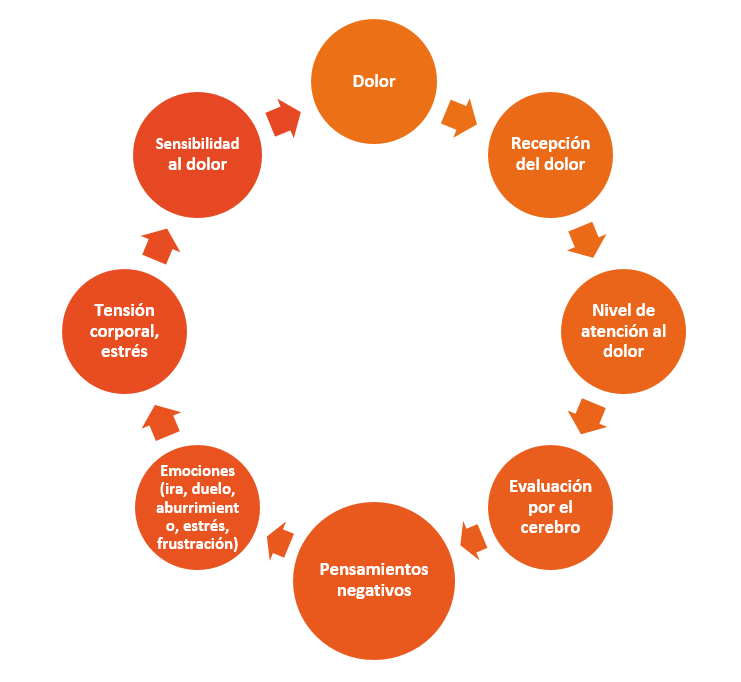Epidermolysis bullosa
Others
2. Anticipatory anxiety
It is important to differentiate pain from anticipatory anxiety, which is the pain to something which has not happened yet, but we believe will be painful. In normal conditions, the pain sensation sends the information to the brain and, depending on how much attention is paid to that sensation, the brain perceives a higher or lower pain sensation. When there is anticipatory anxiety, before the pain is received at the core of the brain it Is already being evaluated by the person as something unpleasant which causes negative thoughts and emotions (fear, anger, loneliness, etc.). This intensifies the pain and tenses the body, causing a vicious circle which increases the pain intensity and, consequently, it also increases the anticipatory anxiety. Instead, positive thoughts (courage, trust, affection, etc.) favour the pain control.

Anticipatory anxiety is especially frequent in children, causing a stress sensation before the procedures and possibly causing anxiety also to the parents. In many cases, the fear presence aggravates the sensation of pain; this is why it is important to offer calm, information, distraction techniques and alternatives to control the pain at any moment to the people who suffer or have suffered it. The role of the adult people is to accompany the children to manage this anxiety and get out of the pain vicious circle (we will talk of some tools going forward).
In some cases, the administration of inhaled nitrous oxide can be of use during the cures to achieve a very superficial sedation in the cases where the child presents anticipatory anxiety or fear to the cures. It is necessary to protect the mask to avoid skin injuries and it must be taken into account that it may not be a well-received method in all cases.
In more complex cases, the administration of anxiolytic medication (benzodiazepines) may be needed. It is essential that this is supervised by the prescribing health professional, adapting the doses at every moment to avoid associated complications.
Last modified
25 March 2025